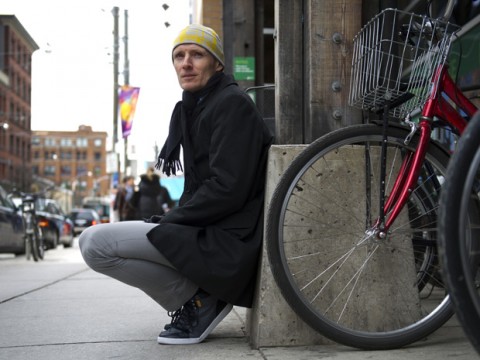
Andreas Rohl hails from Copenhagen, a city with 400 kilometres of bike lanes, foot rests for riders waiting at intersections, and a "highway" that whisks cyclists from the suburbs to downtown.
"I like to say we have no cyclists in Copenhagen," Mr. Rohl, manager of the City of Copenhagen's bicycle program, told about 200 people at the Ontario Bike Summit at the Hyatt Regency on King Street West on Tuesday. "We have citizens who use bikes to get from A to B."
Such non-confrontational lexicon could help lower the temperature of road battles in Toronto, he suggested, where "cyclists" often duke it out with "motorists."
The fourth annual summit, hosted by the Share the Road Cycling Coalition, illustrated how cycling as transportation is edging into the mainstream. Two hundred people paid about $350 a ticket to attend the two day event, sponsored by such big names as the Canadian Automobile Association, Mattamy Homes, Steam Whistle Brewing and Mountain Equipment Co-op. Organizers handed out "bicycle friendly communities" awards to seven municipalities, with Toronto winning the top prize, and launched an advocacy network. On Wednesday, the summit will shift to Queen's Park, for a reception with at least 60 MPPs.
"Twenty years ago, you might say cycling was in the realm of the granola-crunching, tree-hugging, sandal-wearing lefties. That's no longer the case anymore. It's mainstream," said Councillor Denzil Minnan-Wong, also a speaker at the summit.
The councillor presented details of a plan to build another 77 kilometres of bike trails within the city limits in the next decade. The city has just completed 30 kilometres of new trails. This summer, it will start work on a separated lane along Sherbourne, a major milestone, that should be complete by the end of the year, and will coincide with removing bike lanes on Jarvis Street. An environmental assessment for separated lanes on Richmond or Adelaide streets, or both, will also get underway this year. A plan is also coming this fall to expand the Bixi bike share program, Mr. Minnan-Wong said.
Denmark's history of cycling, combined with Copenhagen's dense and flat landscape, has contributed to its popularity. About 37% of trips to school and work are on a bike, compared with 31% in the car, 28% on transit and 4% on foot. "First of all it's infrastructure, you can't ask people to do something where they feel like they put their lives in danger," said Mr. Rohl, who is on leave this year and working in Vancouver on, among other projects, the Active Transportation Master Plan for the city. But so, too, is changing the "story" around cycling. "If changing your mode of transportation is changing your identity, it's a pretty big step to ask people to take," he said.
From National Post
